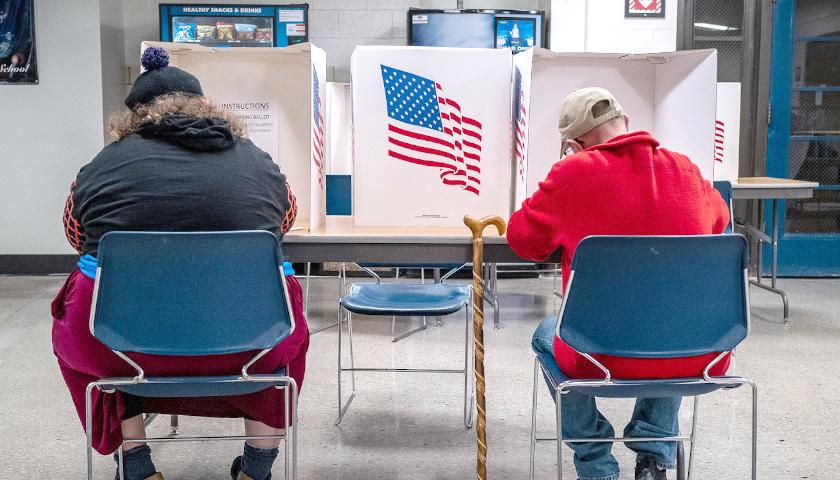The Nashville Area Chamber of Commerce released its 30th Annual Education Report on Tuesday. This year, the business group’s recommendations focused on growing Metro Nashville Public Schools’ Work-Based Learning program.
The Chamber report found that in all, 131 students participated in MNPS’s work-based learning program during the 2021 – 2022 school year, as did 15 business partners. Students worked over 5,000 hours and received upwards of $70,000 in wages in year 1. The graduation rate of those students who participated in year 1 was 97 percent.
However, the group also observed areas in need of improvement. Their recommendations included adding transportation options, expanding eligibility, and creating ways to include illegal immigrant students. According to the report, certain student populations are excluded from work-based learning based on eligibility requirements. Three of the requirements stood out to committee members:
- Students must maintain a “C” average;
- Students must maintain an average attendance rate of 90%; and
- Students must maintain positive behavior including, but not limited to, no 300-400-level offenses and no more than two 200-level offenses during the current school year.
The report was created by a volunteer committee chaired by Madeline Adams of the Japan-American Society of Tennessee and Carrie Maxwell of EY, who consulted with a wide variety of experts to craft a list of observations and recommendations in relation to MNPS’s work-based learning program. It also includes data showing demographics, enrollment, attendance, and performance numbers over the last eight years.
Committee members encourage the district to work with employers to understand the minimum requirements and assurances needed for students to participate. Some employers may be willing to accept students who do not meet all of MNPS’s current eligibility requirements. They also urge MNPS and the Metro government to develop ways to provide work-based learning experiences for students who may require more support or flexibility than their peers.
MNPS began its work-based learning program during the 2021-2022 school year and expanded it to all MNPS high schools in the 2022-2023 school year.
Work-based learning programs provide students with an opportunity to earn academic credits while working paid jobs. They are rooted in vocational training programs established in 1917. The goal is to expose students to many career opportunities while giving them hands-on experience. Job shadowing, internships, cooperative education, service-based learning, and more are incorporated in an effort to better prepare students for future careers.
To participate in the work-based training program, students must provide their own transportation, thus creating a barrier for some. Public transportation is time-consuming and ride-share programs are often unreliable. Participation by more businesses that offer hybrid or remote work, could serve to mitigate some of the transportation challenges.
Funding for work-based learning comes from one of two sources. Either it comes directly from employers, or from the Workforce Innovation and Opportunity Act (WIOA). WIOA is a federal grant program that requires students to have a Social Security Number in order to be eligible to receive wages.
MNPS, like many Tennessee school districts, serves a large number of immigrant and refugee students, both legal and illegal. The Supreme Court ruled in Plyler v. Doe (1982) that all children residing in the United States, regardless of their citizenship or immigration status, have a guaranteed right to free public K-12 education.
The committee noted other districts, in an effort to meet this challenge, have offered travel vouchers or scholarships to students whose families may live in the state illegally. While acknowledging the additional fundraising and planning that this would require, the committee said that all options must be considered in order to include every student who seeks a work-based learning experience.
The chamber’s education committee report repeatedly states that this can not be solely a school district initiative. The burden of successful implementation, they say, rests with the entire community. Those attending the event were encouraged to listen and ask themselves, “What can we do?”
This year’s presentation offering its opinions and recommendations for Metro Nashville Public School System (MNPS) was the first since the Chamber found itself at odds with city and school officials over the its support of a legislative effort to give county mayors the power to take over school boards with too many underperforming schools.
Last August, Metro Council voted 23-1 to pass a resolution, chastising the chamber’s “efforts to subvert democracy and eliminate the people’s voice in determining who serves on the Metropolitan Nashville Board of Public Education.”
The 30th Annual Education Report was delivered at a special event held at the Downtown Nashville Library and attended by local dignitaries. Mayor Cooper, along with several Metro Government officials, joined MNPS Superintendent Dr. Adrienne Battle, school board members, and district administrative staff. Members of the community and teachers were invited, but the event’s 10 a.m. start falls in the middle of the work day for most parents, teachers, and community members.
– – –
TC Weber is a reporter at The Tennessee Star and The Star News Network. He also writes the blog Dad Gone Wild. Follow TC on Twitter. Email tips to [email protected]. He’s the proud parent of two public school children and the spouse of a public school teacher.
Photo “Teacher and Students” by Andy Barbour.








